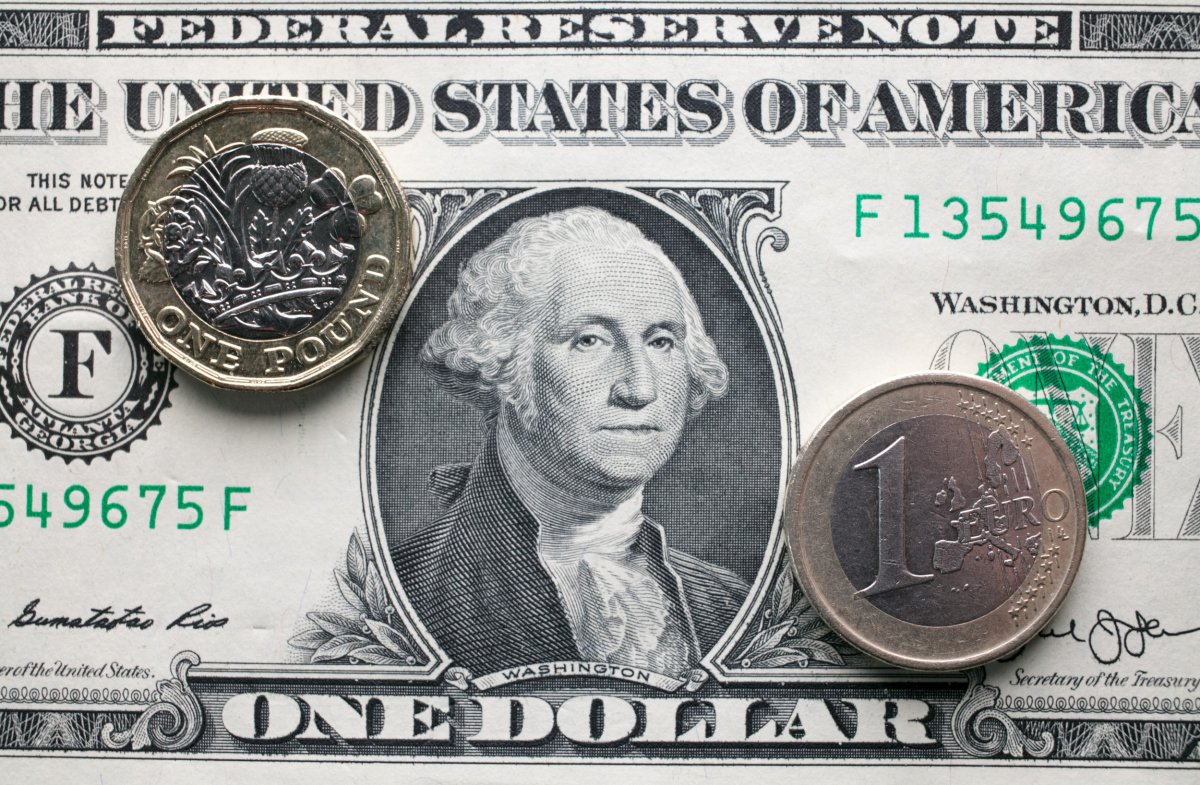A Spanish newspaper columnist has suggested that sanctions imposed on Russia over the ongoing invasion of Ukraine could threaten the position of the U.S. dollar as the world's most popular reserve currency.
Journalist Rafael Poch argued in an op-ed for weekly newspaper CTXT on March 26 that the decision to freeze the Central Bank of Russia's dollar assets could hasten the decline of the dollar as the reserve currency of choice.
Poch asked if recent U.S. moves amounted to "the suicide of the dollar," in remarks that echo recent concerns about the trajectory of the U.S. currency as many nations are seeking to move away from their reliance on it.
The U.S. and its allies have imposed heavy sanctions on Russia since the country launched an invasion of Ukraine on February 24, but Poch, a former correspondent for La Vanguardia newspaper in Moscow, Beijing and Berlin, singled out a decision to cut off the Central Bank of Russia's access to around $300 billion in foreign exchange (forex) and gold reserves.
Russia's total reserves are reportedly $640 billion, and some of that is held in Chinese renminbi, which is also know internationally as the yuan.
Impact on the U.S. Economy
"Many observers believe that the measure will be self-destructive for the global hegemony of the dollar, on which the stability of the deficit and monumentally indebted United States economy rests," Poch wrote.
He pointed to the world's reliance on the dollar as a reserve currency since the gold standard was abandoned in 1971, saying the U.S. "has been using that position of power to order the world to its liking and interest."
"You can block payments, freeze assets and confiscate at any time. Now, by confiscating Russia's reserves, an unmistakable message has been sent to the whole world," Poch said.
Poch pointed to other cases of countries' assets being frozen, including Iran and Venezuela, and argued that: "With all these measures, what the United States tells the world is that any country that has its reserves there is exposed to the fact that, if its policy does not please Washington."
He argued that "the conditions are being created for the growth of a non-Western bloc in the global economy that will have a negative impact on the interests of hegemonism."
Poch also cited the fact that Russia has been reducing its dollar reserves since sanctions were imposed following the annexation of Crimea in 2014 and reports that Saudi Arabia is in talks with China to sell some its crude oil to that country in yuan.
"That oil stops being sold in dollars, isn't it equivalent to a bankruptcy of the United States economy?" Poch asked.
China has also encouraged the wider adoption of the yuan in Africa, where it holds significant sway.
Concerns about the dollar's status as the world's reserve currency are not new, however. Analysis from Reuters published on Tuesday suggested that U.S. sanctions on Russia could encourage countries to reduce their reliance on the dollar more quickly.
The Financial Times warned on March 10 that the decline of the dollar risked "harmful fragmentation" that could destabilize the financial system.
'Erosion of Dollar Dominance'
The International Monetary Fund (IMF) issued a report on March 24 about what it described as the "stealth erosion of dollar dominance" over the past two decades.
The authors said the decline "reflects active portfolio diversification by central bank reserve managers," saying that the "shift out of dollars has been in two directions: a quarter into the Chinese renminbi, and three quarters into the currencies of smaller countries that have played a more limited role as reserve currencies."
Citing the IMF's Currency Composition of Official Foreign Exchange Reserves (COFER) survey, the report said that the share of reserves held in U.S dollars by central banks had declined from 71 percent in 1999 to 59 percent in 2021.
Newsweek has asked the Federal Reserve for comment.

Uncommon Knowledge
Newsweek is committed to challenging conventional wisdom and finding connections in the search for common ground.
Newsweek is committed to challenging conventional wisdom and finding connections in the search for common ground.
About the writer
Darragh Roche is a U.S. News Reporter based in Limerick, Ireland. His focus is reporting on U.S. politics. He has ... Read more
To read how Newsweek uses AI as a newsroom tool, Click here.








